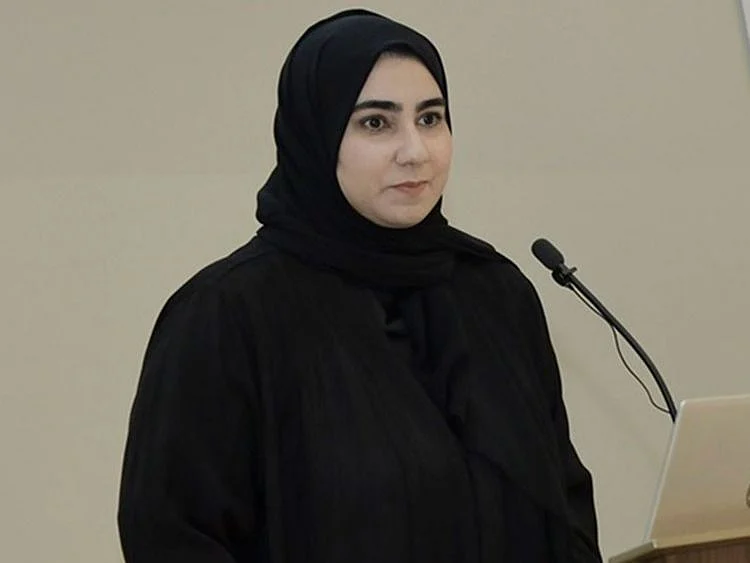UAE to combat latent tuberculosis with national screening programme
MoHAP joins hands with WHO, other partners for national tuberculosis control programme

Dubai: The UAE’s health ministry has joined hands with local health authorities and the World Health Organisation to develop a national framework for early screening and detection of latent tuberculosis and establish a national tuberculosis control programme to improve early detection and curb the disease’s spread among community members.
This was revealed after the Ministry of Health and Prevention (MoHAP) organised an interactive forum on latent tuberculosis, titled “Engaging Discussions and Collaborative Insights for Effective Screening Policy Development.”
The forum focused on high-risk groups like healthcare workers and looked for innovative solutions in screening processes.
What is latent TB?
Tuberculosis Infection (TBI) is an infectious disease caused by bacteria that most often affects the lungs. It spreads through the air when people with TB cough, sneeze or spit.
Common symptoms of TB are prolonged cough (sometimes with blood), chest pain, weakness, fatigue, weight loss, fever and night sweats. The symptoms people get depend on which part of the body is affected by TB. While TB usually affects the lungs, it can also involve the kidneys, brain, spine and skin.
People with latent TB infection are infected with TB bacteria, but they do not have TB disease. However, if these bacteria become active and multiply, latent TB infection can develop into TB disease. Treating people with latent TB infection substantially reduces the risk that latent TB infection will progress to TB disease.
Panel discussion
The forum on latent TB was attended by Dr Laila Al-Jasmi, Head of the Communicable Diseases and Immunisation Department at MoHAP, as well as representatives from health authorities, including the Dubai Health Authority, the Department of Health - Abu Dhabi, and the Emirates Health Services. The event also included representatives from Oman’s Ministry of Health and the WHO.
During a panel discussion, senior officials from participating health authorities came together to share the UAE’s experiences in combating latent tuberculosis. They also discussed ways to strengthen coordination among national health entities, with the goal of achieving even better results.
Attendees expressed their commitment to rolling out agreed-upon policies and developing screening programmes that align with the UAE’s vision to protect community health and prevent infectious diseases. They also reiterated their support for the global fight to eliminate tuberculosis by 2050, in line with the UN Sustainable Development Goals and the WHO’s mission to defeat the disease.
The ministry said the gathering was part of the its ongoing efforts to enhance community health and prevent infectious diseases, in line with its strategy to achieve integrated and sustainable healthcare.
Comprehensive health policies
Dr Hussain Abdul Rahman Al Rand, Assistant Undersecretary for the Public Health Sector, MoHAP, said: “The TBI forum is yet another significant step in our mission towards improving public health by adopting the best international practices in fighting infectious diseases. We are committed to building a health system that’s not just innovative but also built on strong partnerships—a system that can strengthen our ability to tackle the challenges that come with TBI, ensuring we detect it early and keep our community safe.”
He continued, “We’re working closely with our partners across health authorities in the UAE and with the WHO to develop national policies based on the latest science and best practices. These policies aim to unify efforts and establish innovative screening mechanisms that boost early detection rates for TBI while also raising health awareness among community members. It’s all part of our strategy to create a connected and forward-thinking health system that provides proactive and comprehensive services, backed by strong policies and public health programmes.”
Early detection a priority
Meanwhile, Dr Nada Al Marzouqi, Director of the Department of Public Health and Prevention at MoHAP, emphasised that the forum has provided an ideal platform for sharing experiences with health authorities across the country.
“Collaboration among national health authorities is fundamental to achieving our health goals,” she noted. “Through this forum, we sought to strengthen strategies for screening and early detection of TBI, especially for high-risk groups like healthcare workers. We also strived to develop innovative solutions to enhance screening processes that keep pace with today’s health challenges.”
Al Marzouqi added that the Ministry’s strategies are tailored to raise health awareness and manage preventive and community health programmes to improve quality of life across the nation through awareness campaigns that educate healthcare workers and the public on the importance of early detection.
She noted that prevention is the first line of defence against tuberculosis, making early detection a top priority for the Ministry and the health sector.
MoHAP strategies
The ministry said the forum is part of MoHAP’s comprehensive strategies aimed at boosting collaboration among health institutions and developing advanced solutions for screening processes. The Ministry’s strategies are also aimed at supporting national efforts to implement comprehensive and standardised screening policies, fostering collaboration and complementarity among stakeholders.
“Innovation in screening and early detection is also a priority, with the adoption of advanced diagnostic tools that allow for the identification of diseases at their earliest stages. Additionally, the Ministry is committed to health sustainability by embracing international best practices that strengthen the resilience of the health system,” it added.
Sign up for the Daily Briefing
Get the latest news and updates straight to your inbox
Network Links
GN StoreDownload our app
© Al Nisr Publishing LLC 2026. All rights reserved.